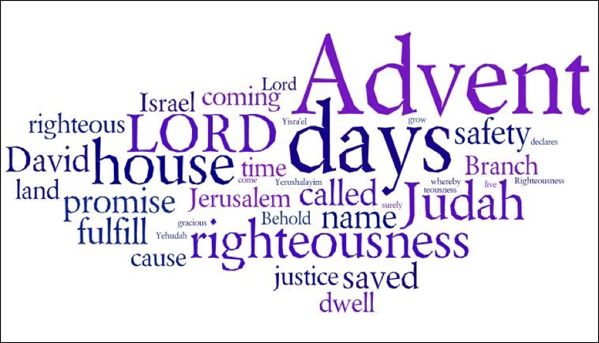Vance Morgan is one of my favourite contemporary writers. He is a Professor of Theology and Philosophy at Providence College in Rhode Island and a member of the Episcopal Church. He often writes about questions and comments from his students. This Advent message was first released in 2019.
“Don’t Worry, Be Hopeful . . . and Get to Work” November 19, 2019 by Vance Morgan
In the liturgical cycle, we are headed towards a new year that begins with the season of Advent—the first season of the liturgical year. Advent is a season of hope and expectation, items that are in noticeably short supply these days. A reading from Isaiah for Advent says:
I am about to create new heavens and a new earth; the former things shall not be remembered or come to mind. But be glad and rejoice forever in what I am creating; for I am about to create Jerusalem as a joy, and its people as a delight. I will rejoice in Jerusalem, and delight in my people; no more shall the sound of weeping be heard in it, or the cry of distress.
I’m convinced that the most important application of texts such as these is not waiting for a future world that is better than this one, but taking responsibility for seeking and striving to create that world now.
Vance wrote: “that in the religious world of my youth, we understood such remarkable texts to be referring to a world to come, one that would be established after Jesus came back, the bad guys were defeated, and Jesus literally established heaven on earth. No wonder we were waiting expectantly for Jesus’ second coming. No wonder we sang songs like “this world is not my home, I’m just a-passin’ through; if heaven’s not my home, then Lord what will I do?”
But he continued on to say “I’m convinced that the most important application of texts such as these is not waiting for a future world that is better than this one, but taking responsibility for seeking and striving to create that world now.” In the gospels, Jesus regularly tells those listening, both then and now, that the kingdom of heaven is not simply a vision of the future. The kingdom of heaven is “within” and “among” us. The most important business of a person of faith is not just to parrot the line from the Lord’s Prayer asking that “thy kingdom come; thy will be done on earth as it is in heaven” as if this is someone else’s task
What would such a reality look like?
Imagine a world in which all persons, from infancy to old age, have their basic needs met, a world in which no one suffers or dies from lack of basic necessities, sufficient food and shelter, or adequate health care.
Imagine a world in which adequate structures and systems are in place that will allow people to be self-sustaining and supporting. Imagine a world of sustainability and empowerment, a world in which the poor are not exploited by the rich, and the powerless are not exploited by the powerful.
There is no doubt that my current reading of texts from Isaiah has been influenced strongly by spending several classes with my students studying liberation theology. Liberation theology is energized, first and foremost, by the conviction that if the gospel has any meaning at all, it has meaning for this world now. I was taught that the gospel’s message of salvation was primarily, if not exclusively, about the state of my soul and what happens after I die. But if salvation is about liberating the oppressed, releasing the prisoners, and lifting up the downtrodden—which Jesus continually insists that it is—then given that we are surrounded by oppression, captivity, and disenfranchisement every day on every side, it is time to get to work. Isaiah’s prophetic vision may be of the future, but it is of a future that we are called to bring into the present.
Isaiah’s powerful texts remind me of a similarly beautiful passage. Isaiah 61 is one of my favourite texts from scripture; I read it when family and friends scattered my father’s ashes in a meadow at the base of the Grand Tetons in Wyoming almost two decades ago.
The Spirit of the Lord God is upon Me, Because the Lord has anointed Me to preach good tidings to the poor; He has sent Me to heal the brokenhearted, to proclaim liberty to the captives, And the opening of the prison to those who are bound . To comfort all who mourn, to console those who mourn in Zion. To give them beauty for ashes, The oil of joy for mourning. The garment of praise for the spirit of heaviness; That they may be called trees of righteousness, The planting of the Lord, that He may be glorified.
According to Luke’s gospel, this is the passage that Jesus read on a Sabbath day in the Nazareth synagogue shortly after spending forty days of temptation in the desert, ending his reading with “Today this scripture is fulfilled in your hearing.” It was his official coming-out party, what some have identified as Jesus’ “mission statement.” He was almost killed on the spot for claiming to be the Messiah.
The stakes are high when we take the good news seriously. Seeking to create a better, more just world is always a threat to those most invested in resisting change. But if we are serious about following Jesus, we also have to be serious about our role in the divine economy. Incarnational faith means that human beings are the way that God gets into the world. If God’s kingdom is to be established, we don’t get to push it off to some future world to come. It’s time to get to work.

